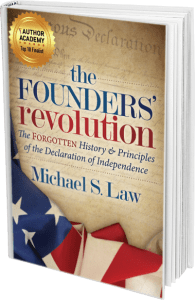Unfortunately, an increasing number of Americans have not even read the Declaration of Independence or the US Constitution, much less any of our other founding documents. They have read about them in textbooks and heard teachers and others talk about them, but they have not read them for themselves. How can Americans understand what they have not read? And among those who have read even just one of our founding documents, many do not understand the historical context in which they were framed, so they lack much that would help them understand the claims made, the truths set forth, and the principles articulated. My purpose, therefore, is make clear what the Founders intended when they used the wording they did and to liken their words, concepts, and charges to some of today’s policies and rhetoric. I have drawn from many of the literary works that the Founders used in developing their initial documents. Some of these works are John Locke’s Second Treatise of Government, the Federalist, and even the Founders’ own words about the founding documents they drafted and approved. I cannot stress enough the importance of truly understanding America’s foundational documents. James Madison said, “The advancement and diffusion of knowledge is the only guardian of true liberty.” Understanding these documents is vital to the preservation of liberty in our country.
— Introduction, xii

